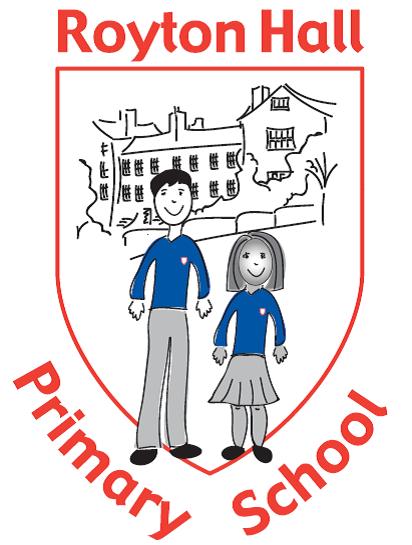Phonics
At Royton Hall, we follow Little Wandle Letters and Sounds Revised for phonics and early reading.
Why is learning to read so important?
- Reading is essential for all subject areas and improves life chances.
- Positive attitudes to reading and choosing to read have academic, social and emotional benefits for children.
How children learn to read
- Phonics is the only route to decoding.
- Learning to say the phonics sounds.
- Blending phonic sounds to read words.
- Increasing the child's fluency in reading sounds, words and books.
Supporting your child with reading
Although your child will be taught to read at home school, you can have a huge impact their reading journey by continuing their practice at home.
There are two types of reading book that your child will read at home.
A reading practice book.
This will be at the correct phonic stage for your child. They have read this in school and should be able to read this fluently and independently.
A sharing book from the library.
Your child will not be able to read this on their own. This book is for you both to read and enjoy together.
The role of Parents' and Carers'
- Have a positive impact on their child's reading.
- Should model the importance of reading practice to develop fluency.
- Children read books online that they have read at school to re-read at home to build fluency.
- There are two different types of books that children read at home; reading practice and a book to share for pleasure.
- Reading at home encourages a love of books, along with developing vocabulary and discussion.
- Parents should use voices, expression, discuss unfamiliar vocabulary, talk about the pictures and predict what might happen next.
- Give positive yet informative feedback when signing the home reading diary.
Reading practice book
This book has been carefully matched to your child's current reading level. If your child is reading it with little help, please don't worry that it's too easy - your child needs to develop fluency and confidence in reading. Your child has read this book three times in school as part of OTTER (Our Time To Enjoy Reading). They read in a small group with a member of staff focusing on decoding, prosody (using expression) and comprehension.
Listen to them read the book. Remember to give them lots of praise - celebrate their success! If they can't read a word, read it to them. After they have finished, talk about the book together. You can use the information at the back of the book to help guide you.
Sharing book
In order to encourage your child to become a lifelong reader, it is important that they learn to read for pleasure. The sharing book is a book they have chosen for you to enjoy together. Please remember that you shouldn't expect your child to read this alone. Read it to or with them. Discuss the pictures, enjoy the story, predict what might happen next, use different voices for the characters, explore the facts in a non-fiction book. The main thing is you have fun!
Phonics Record
Every week, your child will bring home a sheet with new graphemes they have learnt in Phonics, words with those graphemes in and tricky words. They might also have some sentences to read. You can ask your child to teach you the new sounds they have learnt They may use 'spot the grapheme' and 'blend to read the word'. If they are spelling the words, they will use their segmenting fingers to say each sound as they write them.
-
Video guides for parents and carers Please click on this link to take you to the Little Wandle website where you will find videos explaining how we teach blending, tricky words and also how to pronounce the sounds in each phase.
